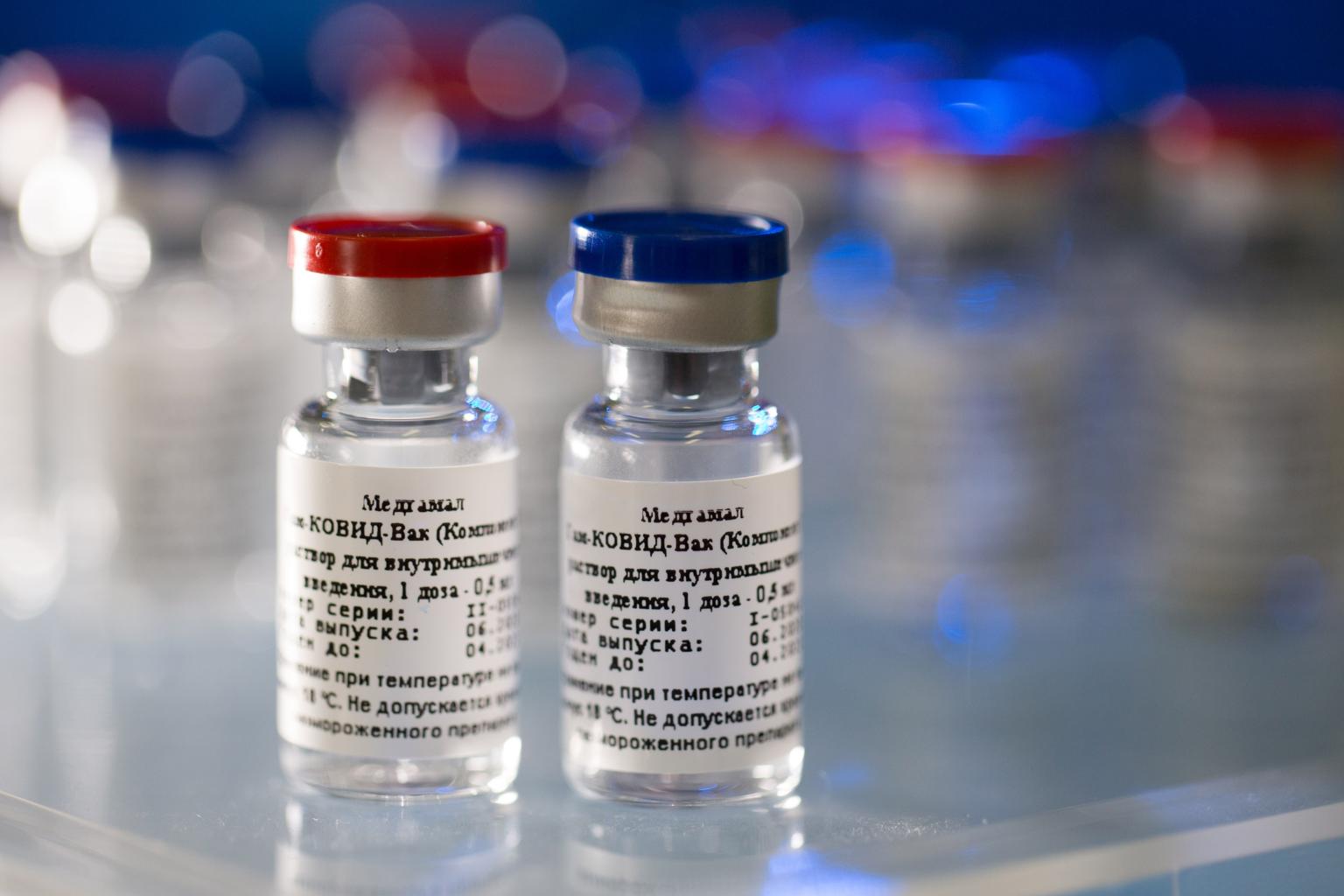Russia becomes first country to approve a Covid-19 vaccine, says Putin
Sign up now: Get ST's newsletters delivered to your inbox

The vaccine was developed by Moscow's Gamaleya Institute, and has had less than two months of human testing.
PHOTO: BLOOMBERG
MOSCOW (REUTERS, BLOOMBERG) - President Vladimir Putin said on Tuesday (Aug 11) that Russia had become the first country in the world to grant regulatory approval to a Covid-19 vaccine after less than two months of human testing, a move hailed by Moscow as evidence of its scientific prowess.
The development paves the way for the mass inoculation of the Russian population, even as the final stage of clinical trials to test safety and efficacy continue.
The speed at which Russia is moving to roll out its vaccine highlights its determination to win the global race for an effective product, but has stirred concerns that it may be putting national prestige before sound science and safety.
Speaking at a government meeting on state television, Mr Putin said the vaccine, developed by Moscow's Gamaleya Institute, was safe and that it had even been administered to one of his daughters.
"I know that it works quite effectively, forms strong immunity, and I repeat, it has passed all the needed checks," he said.
He said he hoped the country would soon start mass producing the vaccine.
His comments come as Russia registered 4,945 new cases of the novel coronavirus on Tuesday, pushing its national case tally to 897,599, the fourth-largest in the world. The official death toll rose to 15,131 after authorities said in their daily coronavirus report that 130 people had died in the previous 24 hours.
The World Health Organisation (WHO) and Russian health authorities are discussing the process for possible WHO pre-qualification for the vaccine, a WHO spokesman said on Tuesday.
"We are in close contact with Russian health authorities and discussions are ongoing with respect to possible WHO pre-qualification of the vaccine, but again pre-qualification of any vaccine includes the rigorous review and assessment of all required safety and efficacy data," WHO spokesman Tarik Jasarevic told a UN briefing in Geneva, referring to clinical trials.
The vaccine's approval by the health ministry foreshadows the start of a larger trial involving thousands of participants, commonly known as a Phase III trial. Such trials, which require a certain rate of participants catching the virus to observe the vaccine's effect, are normally considered essential precursors for a vaccine to receive regulatory approval.
Regulators around the world have insisted that the rush to develop Covid-19 vaccines will not compromise safety. But recent surveys show growing public distrust in governments' efforts to rapidly produce such a vaccine.
Russian health workers treating Covid-19 patients will be offered the chance of volunteering to be vaccinated soon after the vaccine's approval, a source told Reuters last month.
More than 100 possible vaccines are being developed around the world to try to stop the Covid-19 pandemic. At least four are in final Phase III human trials, according to WHO data.
Meanwhile, Philippine President Rodrigo Duterte accepted Russia's offer of its coronavirus vaccine, volunteering to take the first shot as a gesture of trust and gratitude.
"When the vaccine arrives, I will have myself injected in public. Experiment on me first, that's fine with me," he said in a briefing on Monday night (Aug 10).
Mr Duterte - who has called President Putin his "idol" and who's seeking to boost ties with Russia - added that Manila can assist Moscow in clinical trials and local production.


